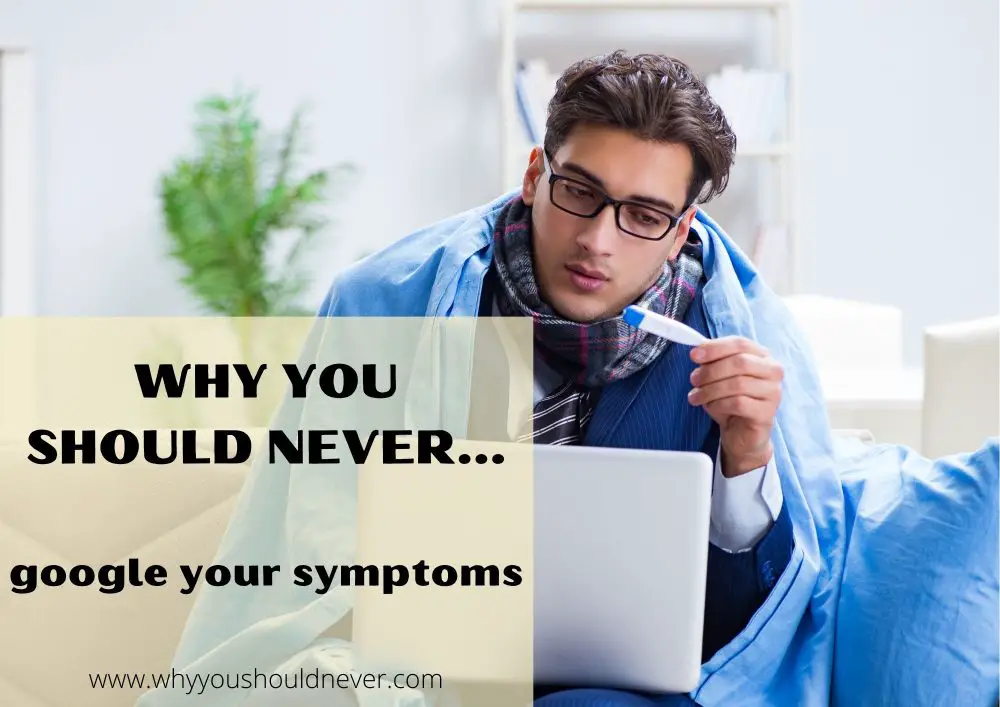![]()
Why You Should Never Google Your Symptoms
When you’re feeling under the weather, or you’ve found a suspicious lump that’s popped up suddenly and given you cause for concern, your first thought might be to hop online and google your symptoms. After all, the Internet knows everything…
Well, not quite.
With so much information on the internet, and so many people sharing their experiences, opinions and advice, sure, your answers might be among the fray, but there’s also an infinite amount of other junk to sift through.
Therein lies the problem. It’s very likely that googling your symptoms as opposed to seeking professional medical advice will do more harm than good.
Here are some of the reasons why you shouldn’t google your symptoms:
Common symptoms bring up plenty of results
If your symptoms are common – such as a headache or fever – it’s very unlikely that a simple internet search will offer useful medical advice.
For example, a Google search for “fever” will result in millions of results. The problem is, as these symptoms could be related to a gazillion different health issues, you won’t really know what’s wrong with you.
Wrong treatments are regularly suggested
Lots of people who have experienced similar symptoms will be quick to tell you their anecdotes and offer advice on what worked for them, despite not knowing for sure what’s wrong with you.
If you search “what can I take for a headache?”, many will tell you to take an aspirin and drink plenty of water, which could make your condition worse, in some cases.
Some illnesses are too serious/complicated to google
Many symptoms are indicative of serious illnesses, so severe and complicated that you could be putting your life in danger if you misdiagnose, take the wrong advice, and don’t seek professional medical help.
For example, the symptoms of kidney failure (shortness of breath, nausea, confusion etc.) could also be attributed to many other, non life-threatening health problems. By seeking help from random people online, you risk minimizing the gravity of what could be a very serious condition.
This could mean that you delay getting life-saving treatment in time.
You might misdiagnose and frighten yourself unnecessarily
Very often, we’ll expect the worst when we google our symptoms. There will usually be a long list of possible causes for those symptoms, but hypochondriacs and natural-born pessimists will skip right past the more common explanations and go straight to the most serious conditions.
If you google your symptoms and some of them correspond to a deadly disease, like cancer, you’ll panic. But it could very well be, and usually is the case, that you’ve misdiagnosed something very common and non-lethal. That lump you thought you felt could be a simple cyst that will disappear with antibiotics.
The truth is, despite the worst condition being the least likely diagnosis, many people will get hung up on that one, fearing the worst.
Googling symptoms makes anxiety worse, and can lead to other health problems
This can be scary for anyone but especially daunting for those prone to things like depression and hypertension.
Bad news can cause vulnerable people’s health to spiral out of control, bringing on severe depression or high blood pressure, the latter of which can lead to heart attack and stroke.
There’s also the possibility that many feel so hopeless that they want to take their own life.
Most people giving advice aren’t medical professionals
The beauty and danger of the Internet is that anyone is free to give advice, no matter how accurate or damaging it is; and anyone is free to take it.
The trouble is that, for the most part, this information isn’t scientifically factual, and these people aren’t doctors or nurses. They’re just people online who have anecdotal evidence – their own personal opinions and experiences.
Though there are some doctors online who do give medical advice, and some of their information might be helpful, you can’t know for sure what their credentials are and if you can really trust them.
There are also way too many differing opinions to disseminate on the Internet. How will you determine what advice to follow, or who is the most reliable source?
Only a full examination can determine what’s wrong
No matter how many times you google your symptoms, and how many seemingly knowledgeable people you consult online, the bottom line is that without a thorough examination, no one can truly know what’s wrong with you.
It takes doctors several years to learn and master their craft, so they will know better than you and your random internet buddies what’s wrong with your body. But a diagnosis can only be done accurately after they’ve seen you in person and run the necessary tests.
Conclusion
Google is a great place for recipes, travel info and cat videos – but not the best place when it comes to health. Information overload is so common when googling your symptoms, that you’ll almost certainly go away thinking that you’re sicker than you actually are.
But I get it, you want an immediate answer to your problem, and sometimes getting to a doctor isn’t an option – for logistical, financial, or other reasons. My advice, in this case, would be to use the Internet sparingly when searching minor symptoms, and seek medical advice for more serious issues.
